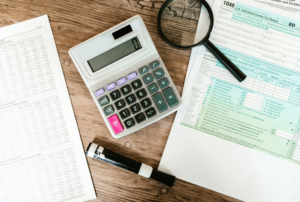The Role of Credit Scores in Quick Loan Approval: How to Improve Your Chances

When you’re in need of fast cash, a quick loan can be a convenient solution. However, your credit score plays a crucial role in whether you’ll get approved for that loan and at what terms. Understanding how your credit score affects your chances and what you can do to improve it can make all the difference.
What Is a Credit Score and Why Does It Matter?
Your credit score is a three-digit number that reflects your creditworthiness, indicating how likely you are to repay the pikalaina you applied for. Lenders rely on this score to evaluate the risk of lending to you. The higher your credit score, the better your chances of loan approval, and you may also qualify for more favorable interest rates and terms.
How Credit Scores Are Calculated:
- Payment History (35%): This is the biggest factor, reflecting whether you’ve paid past credit accounts on time.
- Amounts Owed (30%): This looks at how much debt you have compared to your available credit. High balances can lower your score.
- Length of Credit History (15%): A longer credit history usually boosts your score, as it shows lenders your track record over time.
- Credit Mix (10%): Maintaining a mix of credit types, such as credit cards, auto loans, and mortgages, can enhance your credit score.
- New Credit (10%): Opening several new accounts in a short time can lower your score, as it may suggest you’re taking on more debt than you can handle.

The Impact of Credit Scores on Quick Loan Approval
When applying for a quick loan, your credit score is often the first thing lenders check. It helps them decide whether to approve your loan and under what conditions. Here’s how your credit score can influence the process:
Approval Chances:
- Good to Excellent Credit (670-850): Borrowers with higher credit scores are more likely to be approved and may receive better loan terms, such as lower interest rates.
- Fair Credit (580-669): Approval is possible, but you might face higher interest rates and less favorable terms.
- Poor Credit (Below 580): It can be challenging to get approved, and if you do, the loan terms might not be ideal. Some lenders might even require a co-signer.
How to Improve Your Credit Score Before Applying

If your credit score isn’t as high as you’d like, don’t worry. There are steps you can take to improve it before applying for a quick loan. Here are some tips to help enhance your score:
Check Your Credit Report for Errors
Start by getting a free copy of your credit report from each of the three major credit bureaus. Examine each report closely for any mistakes, such as inaccurate account information or late payments, that you can dispute. Correcting these errors can provide a quick boost to your credit score.
Pay Down Existing Debt
One of the quickest ways to improve your credit score is to reduce your debt. Focus on paying down credit card balances, especially those that are close to their limits. Lowering your credit utilization ratio (the amount of credit you’re using compared to your total credit limit) can positively impact your score.
Make All Payments on Time
Unfailingly paying your bills on time is one of the most effective ways to boost your credit score. To help avoid missing due dates, consider setting up reminders or automatic payments. Even a single late payment can have a substantial impact on your score, so it’s essential to stay vigilant about timely payments.
Avoid Opening New Credit Accounts
Each time you apply for new credit, it results in a hard inquiry on your credit report, which can slightly lower your score. If you’re planning to apply for a quick loan, try to avoid opening new credit accounts in the months leading up to your application.
Your credit score plays a vital role in the quick loan approval process. By understanding how it impacts your chances and taking steps to improve your score, you can increase your odds of getting approved and securing better loan terms. Remember, improving your credit score doesn’t happen overnight, but with consistent effort, you’ll be well on your way to a healthier financial future. So, before you apply for that quick loan, take some time to review your credit score and make any necessary improvements. A little preparation can go a long way in helping you get the loan you need at the best possible terms.
…




 The first thing that you need to do is figure out what your credit score actually is. Many people don’t even know their own credit scores and go around applying for loans without knowing how it will affect them financially in the long term, so one important step to take is checking your credit report. You can get a free copy of your credit report every year, so it’s a good idea to take advantage of that.
The first thing that you need to do is figure out what your credit score actually is. Many people don’t even know their own credit scores and go around applying for loans without knowing how it will affect them financially in the long term, so one important step to take is checking your credit report. You can get a free copy of your credit report every year, so it’s a good idea to take advantage of that. When you’re trying to fix your credit score, you mustn’t just rush into applying for loans with high-interest rates and expect that they’ll help. If anything, this will only worsen when it comes time to pay off the loan because of how much extra money in fees is involved. On top of that, it’s also important to remember that removing negative information from your credit
When you’re trying to fix your credit score, you mustn’t just rush into applying for loans with high-interest rates and expect that they’ll help. If anything, this will only worsen when it comes time to pay off the loan because of how much extra money in fees is involved. On top of that, it’s also important to remember that removing negative information from your credit